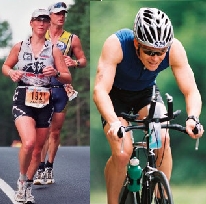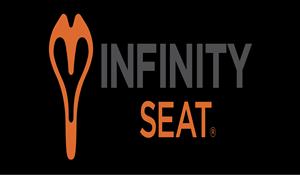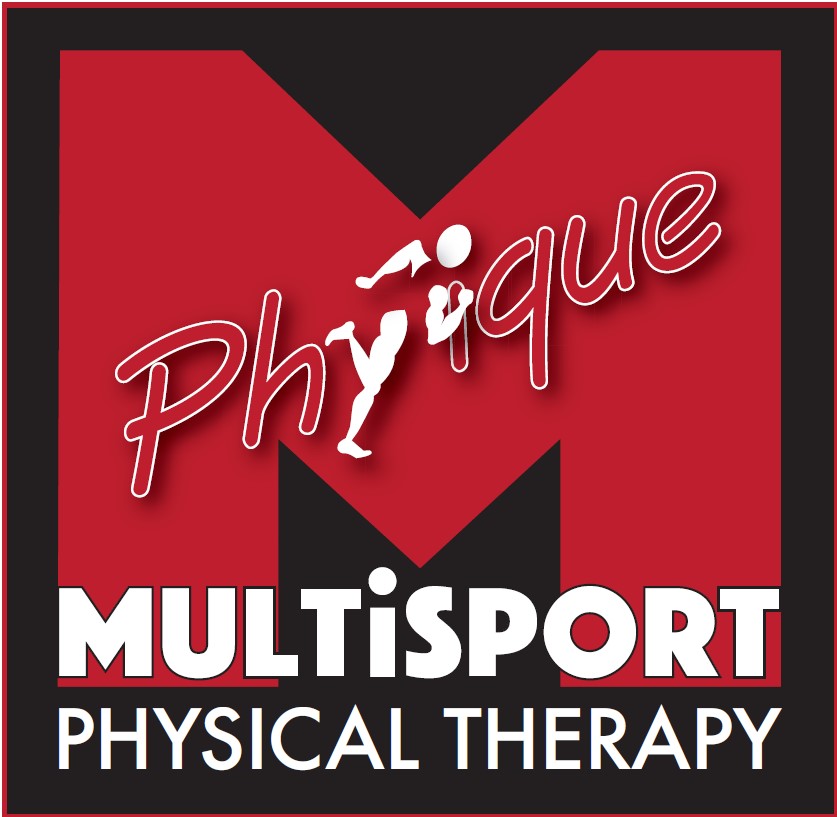Allison Felley & Rob McElroy

I had the pleasure to chat with 2 TCSD members who recently qualified for their first Ironman Hawaii. Both are great people who I am proud to call my friends. Please cheer for Rob McElroy (RM) and Allison Felley (AF) along with our other TCSD friends racing in Kona this year.
CZ: How long have you been doing triathlons?
RM: Let me see...about 8 years now I guess. It seems like just yesterday.
AF: I started in August of 2000.
CZ: What was your first triathlon experience?
RM: My first race was the Imperial Beach Triathlon in 1994. I raced without a wetsuit and rode on a mountain bike with full knobby tires. I remember feeling like the triathlon was an obstacle course set up just for me. Everything was corded off, police managed the intersections, volunteers directed me where to go, and the spectators cheered me on. I think I had a perma-grin throughout the whole race. I was hooked.
AF: My first race was Malibu 2000. I had a strong running background, but VERY much underestimated what it would feel like to run off the bike - considering I had never done it before. Almost fell flat on my face within the first 100 yards...and then realized I still had four miles to go. I had much to learn.
CZ: When did you first think you could qualify for Hawaii or what really gave you hope that you could realize this dream?
RM: In the beginning, Ironman was out of the question. The distance of the race seemed astronomical and I had no desire to put my body through that kind of punishment. As time went by, and my races grew longer, Ironman started to sound more realistic. The goal of qualifying for Hawaii began to solidify in my mind.
It wasn't until I started working for PR* Nutrition that the Ironman fires really started burning. Up until that point, I hadn't met anyone that had intentions to qualify for Ironman, much less anyone that had actually raced in Hawaii. At PR* I talked with them every day and ran with them at lunch. They weren't super-human, they were just determined and dedicated athletes. That's when qualifying for Ironman became real to me. I would qualify, then race the Ironman.
AF: Going to Hawaii became a dream goal after my first race. I really never thought it possible until the California Half May 2002 - in which I placed fourth age group after a disappointing run. I was hoping to qualify for Hawaii in IM Wisconsin - but knew it would be tough (if not downright impossible) with my first Ironman.
CZ: Rob, how many times have you raced the IM distance?
RM: Three times: Ironman California 2000, 2001 and Ironman Lake Placid 2002.
CZ: Rob, do you think that IM distance experience that you bring to the table will have an impact on your performance in Kona?
RM: My previous Ironman races have definitely prepared me tactically and mentally for the demands of an Ironman race. The race in Kona is relatively easy from a topographical standpoint, however, I have deep respect for the conditions. The wind, heat, and humidity that competitiors face in Kona will be completely new to me. It has been necessary to re-evaluate my pacing, nutrition, and gear. In many ways, I feel like racing Kona will be like doing my first Ironman all over again.
CZ: Alli, does that worry you that you have not raced the IM distance before?
AF: Worry is an understatement! Terrified is the more appropriate term. I am really concerned about how the heat and humidity will factor in. Concerned about nutrition, salt, what to wear, sun block, flats, blisters, bonking....even fainting has crossed my mind. I WILL finish though. I just keep telling myself that. I am capable of all the distances - just have to put them in succession. No small task!
CZ: Alli, you absolutely proved to the world at the Half Vineman that you are one of the best. Sure it would be beneficial to have the full Ironman racing experience, but there is a high probability that you will be fresher than a lot of your competitors who had to qualify through a full IM. What are your advantages over your competition?
RM: I think that my biggest advantage is that I am not just swimmer, cyclist, or a runner. I am a triathlete. If you were to look at my race results, you would see fairly lackluster standings in each individual leg. But when you put them all together, I end up with a pretty decent result.
AF: Tough question. I do not excel at any one discipline but have been able to slowly improve all my weaknesses in each. I think that my advantage is twofold - momentum and a high threshold for pain. Once in motion I tend to stay in motion - thrive off of the endurance. I see the pain as a challenge and a threat. It enables me to keep going despite crippling and cramping legs as the pain becomes the enemy in a sense - something to conquer and endure.
CZ: Tell me about your qualifying races. Sometimes it is difficult to tell what place you are in during a triathlon. During the race, did you think you were having a performance that would qualify you for Kona?
RM: The week before Lake Placid, I broke a shifter cable and had to get it fixed emergency style (thanks Tom Piszkin). Four days before the race, I broke the chain on my bike 5 miles outside of town. A nice guy lent me his chain tool and I promptly broke it. After pushing my bike back to town for about a mile, I was able to hitch a ride from a local resident. Finally, a race volunteer at registration put my unadjustable, unremovable athlete bracelet on incorrectly and I had to spend two days trying to track down a new bracelet. I tried to consider my pre-race challenges to be the storm before the calm.
I had a decent time on the swim (58 minutes) but it felt pretty bad at the start. My wetsuit felt like it was choking me and there was a boat on the course that was puking out foul exhaust. Once the crowds thinned out and I could breathe cleaner air, I was able to get into a more relaxed rhythm.
The Lake Placid bike course basically has one 6-mile downhill where you can get up to about 50mph, then the rest of the course is rolling hills with an upward bias. The first few miles are deceptively difficult to the point where you question your cycling abilities for the day. Fortunately, I pre-rode the course and knew what to expect. My strategy was to ride within myself and ignore the people in front of me. If I could keep a decent pace and save my legs, I wouldn't be a casualty of the bike course and it would pay off on the second loop of the run. About 15 miles from the bike finish, there is an out and back portion where you can see how many people are in front of you. I saw my competition and took heart in the fact that there weren't too many people in front of me.
My first indication that I had a chance to qualify came when my brother in law told me that I had about 16 people in my age group ahead of me coming off the bike. My legs felt really good and I had learned that if I can run a sub 3:30 marathon in an Ironman, I would pass a lot of people. All I had to do was be patient and wait for marathon attrition to take place. I ran the first 10 miles with the 3rd place female at the time and remembered that someone had told me when you are an amateur racing side by side with the top females, you are doing pretty well. Every little bit of positive reinforcement helped.
The critical point of the race came at mile 18 of the run. That's when I started to become more aware of the competitors in my age group. I had seen a few 30-34 year old men pass by and I had passed a few as well. My chances of qualifying and the people who could keep me from qualifying could be measured within a 1-mile radius. At that point I determined that I would not quit and that I would give every last gram of effort in my body to beat my competitors to the finish line. I began to move up in the rankings and I ran scared. I couldn't bear to look back for fear of seeing a Hawaii-stealing pack of wolves right on my heels. It wasn't until I made the last turn into the finishing chute that I looked back and saw...no one. I was able to celebrate with the crowd, then cross the finish line. I turned to look at my time and saw that I had placed 34th overall. I was floored. I turned to my brother-in-law who was on the sidelines and said "if that doesn't qualify me, nothing ever will." I ended up getting 6th in my age group with 14 slots available.
AF: I didn't taper for Vineman as it was a training race to get ready for Wisconsin. I felt great out of the water and just decided to gun the bike and see how long my legs could hold on the run. My wave was first after the pros. I knew I was in the lead group out of the water. I passed several women on the bike and only had one pass me. A spectator told me I was second in my age group during the run. I kept looking behind me to make sure no one was approaching. I was sure the #1 would take the spot. She finished 3 minutes ahead of me and was there at the finish line to congratulate me. So I knew right away (she beat me in the CA half for her spot). I tried to contain my excitement and not call everyone I knew until I actually had it. Julie Moss was there to hand me my award - very special indeed. The whole experience is still so unbelievable - I really didn't think it would happen. I knew it was possible though - as I had my passport photos taken the day before.
CZ: Wow, I knew you both would have exciting stories describing how the qualifying race went down. What was a key element of your preparation that pushed you over the top and had the most significant impact on your qualifying?
RM: Preparation for my qualifying race came over three years of trial and error. Every year, I narrowed down what I need to do physically, nutritionally and strategically to race at the Ironman distance. However, what pushed me over the top didn't come to me until mile 18 of the Lake Placid run. That's when I stacked up the past three years of training and sacrifice, three years of amazing support from family and friends, and three years of coming up short while knowing that I could qualify. I took that stack, formed it into a ball, and burned it in the furnace of my desire. For the next 8.2 miles, I would not quit and I would not fail. In the end, I don't think that I was necessarily a better athlete than some of my competitors, but I know I wanted to qualify more than most and that's what gave me the edge.
AF: Remaining calm. There was no pressure on me. I let my body guide me through the race. I capitalized on all my high mileage training and enjoyed myself.
CZ: Will friends and family join you in Kona?
RM: My parents, sister, brother in law (who did Canada this year for his first ever Ironman), and nephew will be there. Ken Simmons (triclub member and first time Ironman at California in 2001) is getting married to Erin Raskin (my favorite acupuncturist) and will be in Kona for part of their honeymoon. Also, Johnny Suprise (triclub member) will be racing in Kona this year. Johnny and I did our first ever Ironman together in California 2000. Now we get to do the big show in Kona together for the first time.
My parents had already rented a house prior to my qualifying race, Ken had already planned on being in Kona, and Johnny was already racing. If I hadn't qualified for Kona, everyone would have been in Kona for the race except me!
AF: My entire immediate family will be there. I think my Dad is more excited about the whole event than I am. They are incredibly supportive.
CZ: How have they impacted this athletic journey of yours?
RM: I have never asked anyone to watch me race. In many of my shorter races, I would show up, race, and leave without seeing anyone I know personally. I didn't really think that it made much of a difference until I started doing Ironman distance races. My parents live in Washington state, but they have been at all of my Ironman races. Ironman, as opposed to shorter races, can be very emotional for me. To have my family and friends along the course and at the finish line brings meaning to the Ironman and the punishment that I am putting myself through. They make me race harder, and add to the positive memories of the race. I don't know that I would have been as driven to qualify without their support.
AF: Being there every step of the way. I think they are scared with the longer distances and worry about my health and body, but they continue to support me in the endeavor. Within 3 days of qualifying my Dad had tickets purchased for the whole family and a house rented. They know how much this means to me.
CZ: What athletic goals do you have after Kona?
RM: Before I had qualified in Lake Placid, I had promised myself that I would not do any Ironman racing in 2003. My mind, body and life need a break from the long training days. However, I plan to race a lot of shorter distances and revisit some of the races that made me fall in love with the sport of triathlon in the first place. My goal next year is to get fast and have fun.
AF: I’m not really sure yet, but I’m already thinking about how I can qualify for next year. I’m planning on Ironman Brazil in May 2003. I will focus on running and do a marathon or two during the winter months. I will be back in Boston for the marathon next April as well.








